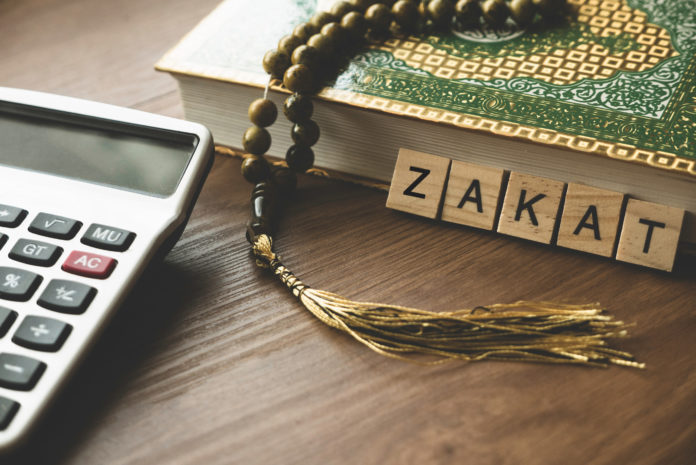Ahmed Peerbux, the founder of the Local Zakat Initiative, says when we give our zakat we shouldn’t uniquely focus on those in need outside of the UK.
Ramadan is the month of fasting, but there is another pillar many of us will be thinking about over the last ten days – zakat. Many of us pay our zakat in Ramadan because, with Allah’s permission, the rewards for right actions are multiplied in this month.
In Ramadan we strive for Ihsan (excellence) in our ibadah – we make a special effort to read and reflect on the Qur’an, to do dhikr with gravity and sincerity, to perfect our prayer. Zakat is also an act of ibadah, and so it is no less deserving of that same striving for Ihsan.
The twin command to “establish salat and pay zakat” occurs 24 times in the Qur’an. Eight involve the direct command, addressed either to the Muslims (six times) or to the Bani Isra’il (twice). The mufassirun say that Allah’s coupling of prayer and zakat together in the Qur’an indicates that the two actions are interdependent, meaning that your prayer is not acceptable unless your payment of zakat has been properly discharged and vice versa. Zakat is as critical as the prayer, and has been referred to by scholars as the partner of the prayer.
In Zakat: Raising of a Fallen Pillar Shaykh Abdalhaqq Bewley, translator of the Noble Qur’an and Chair of the British Board of Scholars & Imams (BBSI), has argued that “in spite of its pivotal nature and people’s nominal affirmation of it, it is absolutely clear that the vast majority of Muslims do not give zakat the prime importance it is due…People certainly do not treat zakat as if the validity of their prayers depended upon its correct disbursement.”
Zakat in the Muslim world
So how was zakat paid in traditional Muslim societies, and how does that compare with what we do now?
Subscribe to our newsletter and stay updated on the latest news and updates from around the Muslim world!
First, there is the matter of who we pay our zakat to. What we mostly do now is pay our zakat online, in a few clicks, to a charity. Donate, Automate, Gift Aid, Paid. Charities, of course, are principally concerned with the voluntary giving of help to those in need; they facilitate voluntary donations and acts of generosity. But there is nothing voluntary about zakat. Zakat money isn’t ours to give, after all; if we don’t pay it, we’re holding on to something that isn’t ours. The administration of zakat by charities has therefore conflated it with sadaqa (voluntary giving), and muddied the meaning of zakat for many of us. So too have their dubious, corporate terms like “zakat eligible” and “100% Donation Policy.”
In traditional Muslim societies, zakat was taken by an amil (collector) who was appointed by a leader. The Prophet ﷺ appointed zakat collectors to almost every corner of the Arabian peninsula; people who took zakat from those who owed it and physically disbursed the proceeds to people in need without delay. Zakat, therefore, was inextricably linked with the political leadership of the Muslim community.

How does this relate to us? Muslims in Britain may not be unified in terms of leadership, but we have to start from where we are. The Prophet ﷺ said: “If three people set out on a journey, they should appoint one of themselves as amir.” From the sunnah we can see that leadership is an expected feature of all groups from the smallest to the largest.
There are Muslim communities on a local level across Britain which are recognised by all those who are part of them. These communities, often based around ethnic or factional lines, have a tangible bearing on the lives of almost all the Muslims in Britain. Leaders from these communities must come forward and accept the responsibility of zakat; they must appoint collectors who are known and trusted, climb the mimbars, and announce: “these people will be collecting our zakat.”
Charities distribute almost all of the zakat they collect abroad. Islamic Relief’s zakat page tells me that £150 “can provide bread to 675 people displaced by war in Syria,” while Muslim Aid says £249 “Could provide food, shelter, and emergency healthcare, in Gaza, Syria, and Yemen.” Neither tell me anything about the good zakat could do in South London, or Burton, or Bradford. Virtually all UK Muslim charities foster the impression that zakat is better spent abroad, and this has conditioned our thinking on the third pillar. Go on any Muslim charity website right now; you will not find much about the need of Muslims in Britain.
Some people say: “but the state looks after people here in Britain.” This represents a dereliction of duty, because the welfare of the Muslims is the responsibility of the Muslims. Other people say: “but poverty here isn’t real poverty.” This is the inevitable result of charities’ predilection for “poverty porn;” if you’re not in rags, you’re not deserving. Having collected and distributed zakat in London for two years now, there are most definitely Muslims here in dire need.
Giving locally
During the time of the Prophet ﷺ, what was collected in an area was also distributed in the same area. When he ﷺ sent Mu’adh Ibn Jabal to govern Yemen, he left him with these words: “Inform them that Allah has made the five prayers each day and night obligatory for them, and that Allah has made the zakat obligatory for them, which would be collected from their wealthy and distributed to their needy.” This hadith, which opens Sahih al Bukhari’s Book of Zakat, highlights not only the obligation of paying zakat, but also the localised way in which that obligation was to be carried out.
The great early scholars of Islam also agreed that zakat should be given to the people of the place it is collected from, if people there are in need of it. Sahnun reports in his Mudawwana – a compendium of Imam Malik’s legal opinions – that when Malik was asked where zakat should be distributed, he replied: “Among the people of the land from which the zakat is taken, and in the places where the people from whom it is taken [live].”
It does not follow that reestablishing the sunnahs of leadership and a locally-collected zakat means neglecting the Muslim abroad. On this point, we must appreciate the crucial distinction between zakat (the compulsory third pillar) and sadaqa (voluntary charity). Zakat has conditions; it is for the Muslims. It should be distributed locally. It has a threshold. It is paid once a year, and so on. Sadaqa, by contrast, has almost no conditions. We also must remember that Muslims are the most generous charity givers of all faith groups in Britain. Alongside a locally-administered zakat, we can continue to have an enormous impact overseas through the millions we donate in sadaqa every year.
The word “radical” comes from the Latin radicalis: “of or relating to a root.” Paying zakat with a few clicks to a charity may be quick and convenient, but paying zakat to an appointed collector from your community is radical. It is putting things back in their proper place, and it gets to the very root of the verb “zakka”, which means to grow, thrive, purify and improve; the destiny, insha’ Allah, of the Muslims in Britain.
Ahmed Peerbux is the founder of the Local Zakat Initiative. For more information, visit: localzakat.co.uk






















